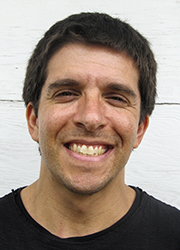"Year of Awareness" sessions examine impact of racism on low income neighborhoods
 CNP fund development manager Mordecai Cargill and Evelyn Burnett, CNP vice president of economic opportunity
CNP fund development manager Mordecai Cargill and Evelyn Burnett, CNP vice president of economic opportunity
Race is at the forefront of national debate once more following a contentious presidential election. Through a forthcoming series of workshops, Cleveland Neighborhood Progress (CNP) will determine the impact the complex and controversial topic is having on Cleveland's poorest neighborhoods.
CNP, a nonprofit community development group, is convening a cross-section of civic leaders and stakeholders to discuss the effects of persistent racial inequality on marginalized populations. The work began in 2016 after CNP partnered with the Racial Equity Institute on "Year of Awareness" training sessions touching on racism in all its forms. Efforts with the North Carolina-based organization re-launched in January with history-based training aimed at any resident willing to attend. Scheduled every month through the rest of the year, half-day sessions are $75, while two-day training events are $250.
"We want to get this out to as many people as possible," says Evelyn Burnett, vice president of economic opportunity at CNP. "We're trying to cast a wide net." The next half-day event is Monday, March 6. The next two-day event is the following Tuesday and Wednesday, March 7 and 8.
Per CNP fund development manager Mordecai Cargill, "Year of Awareness" sessions will be led by the institute's alliance of trainers and community organizers. Law enforcement professionals and social justice activists teach the sessions, imparting historical events that highlight America's institutional disparities. Earlier this month, organizers screened "13th," a documentary centered on a U.S. mass-incarceration system that disproportionately imprisons African-American men.
Other talks will highlight the problems encountered in high-poverty, racially segregated regions; among them diminished resources, underperforming schools, deteriorating physical environments, and the constant threat of violence. Session planners expect to reach 1,000-1,500 participants before year's end.
Cleveland has its share of long-standing inequities, CNP officials note. Even thriving neighborhoods like Ohio City, Detroit Shoreway and Tremont won't reach their full potential until the ongoing renaissance becomes more inclusive.
"It's good this development is happening, but there are people in those places not participating in the same way, and that often falls along racial lines," says Burnett. "We have to address these issues to do our work."
Uplifting the underserved means having uncomfortable conversations about the systemic reasons American society is divided between the "haves" and "have-nots," Cargill says.
"We've got to become familiar with some of the barriers people face," he says. "Creating solutions tailored to the needs of residents requires this kind of understanding."

